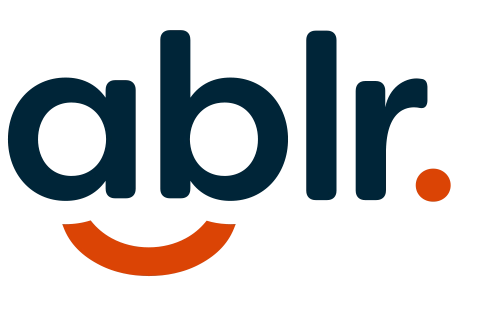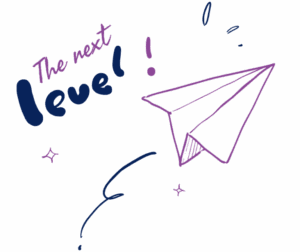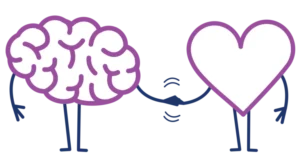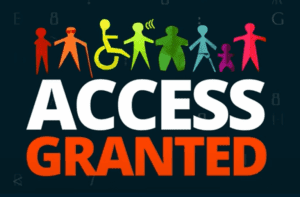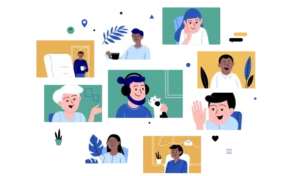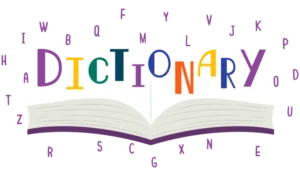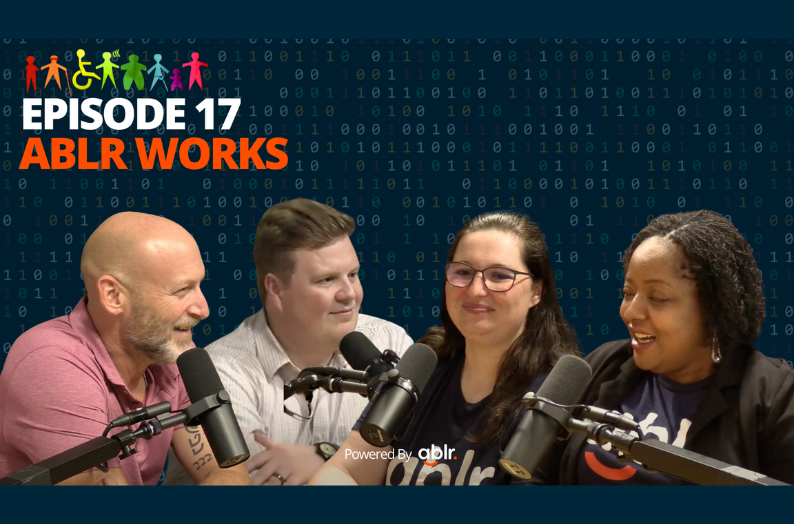Access Granted: Ablr Works Part 1 Transcript. Tune in wherever you listen to podcasts.
Mike: Welcome back to Access Granted. I’m your host, Mike Ianelli, and today I’m thrilled to introduce The Trike, three essential members of the Ablr team. Joining me are Liv, our program coordinator, Logan, our job developer, and Shannon our lead trainer. Together they are the driving force behind Ablr Works, our workforce development initiative.
Mike: Through their dedication, they create meaningful pathways to employment by identifying, training, and empowering individuals with disabilities to thrive in the workforce. Stay tuned to meet the dream team.
Mike: So hey, thank you all for being here, sincerely. This is a good discussion to have. I’ve been wanting to share this information with the world. I think you guys have been doing incredible work. We call you what, the trike? Is that what Johnny Sams calls you, the trike? But the intention of the trike is we’ve got three individual people that are coming together to make something work very well, and that’s why we call it the trike.
Mike: And so I want to talk a little bit today about our Ablr Works program, which is our workforce development program. I want to talk a little bit about why that is making such a radical impact on the lives of people with disabilities and organizations who are staffing them. But before we jump into some of these questions, I want to go around the table.
Mike: I want to do quick introductions for each of you. So I’m gonna start with Liv. Liv, give me a little bit of background. Cause I know you joined the organization. I know you were recruited highly in from 321 Coffee. I also know that you have this incredible passion for helping people in services for others with canine companions.
Mike: Obviously with everything you do, you guys are incredible, you and your brother and your family, but I want you to tell me a little bit about your entry or entree into Ablr, what you’ve been doing for the organization and explain a little bit about the works program.
Liv: Definitely. Yeah.
Liv: So my name is Liv Evans. I’m the program coordinator for the Ablr Works program, which is the workforce development division of Ablr. I joined Ablr Works and Ablr as a team member in October of 2022, when we first executed our contract with the Division of Services for the Blind in North Carolina. Which allowed for bringing a program coordinator onto the team.
Liv: Prior to that, I had been working at the University of Georgia in the accommodations office, and I had a caseload of over 400 students that I was working with in order to get their accommodations all set and ensure that the college experience was accessible to them.
Mike: Wow
Liv: One of the realities that I found is that sometimes college just isn’t accessible for students with disabilities.
Liv: It’s one of those systems that really has a long way to go when it comes to being an accessible system. And I would occasionally become frustrated by the extent that I could help my students and the extent that I couldn’t. And so I wanted to be part of a team that was really working to make change within the system.
Liv: Not just change for those individual students, which is an amazing and valiant effort that these individuals at universities are making. But sometimes there are just barriers beyond our control. to helping those students. And so when I joined Ablr, I was really joining with the desire to continue to build something really impactful and really important for people with disabilities. Which is why I was so excited about the Ablr Works program and joining Shannon in really influencing these candidates that we had in the program.
Mike: Yeah, so great segue. So, love what you’re doing with Ablr at Works. Love what you guys are all doing. Let’s jump into Shannon, because Shannon, your background is awesome, because where you’ve come from with John to where you are today and the number of people that you were training is incredible.
Mike: So let’s talk a little bit about you there Shannon, for a minute.
Shannon: So yes, I’m Shannon Garner. I am the training specialist on the team. So that’s a fancy way of saying that I get to teach the awesome candidates that we have coming into Ablr Works. I’ve been with Ablr since before it was Ablr, so a very long time.
Shannon: I think I have about, what, five?
Mike: Four or five years.
Shannon: Five, six years.
Mike: Yeah.
Shannon: That’s awesome.
Mike: Ablr’s fourth anniversary is coming up, I think it’s next week. Johnny Sams, is that accurate? He’s not paying attention.
Mike: October
Shannon: 3rd.
Mike: Oh, October 3rd is our four year anniversary for Ablr. October 3rd. So you worked at LCI.
Shannon: Yes.
Mike: Talk a little bit about your journey into LCI. Talk a little bit of the relationship with John and then how you’ve evolved your career over the last few years with Ablr, which has been amazing, which is the entire, frankly, it’s the entire intention of what we’re trying to do. It’s true.
Shannon: So at first I started, with traveling about the 2,800 miles away from home into El Paso, Texas, where I was a customer service rep for USCIS.
Shannon: So I was working in immigration. But I wanted to come back home because I wanted to be closer to my family. When I came back home, I didn’t have employment and I decided to apply to LCI. Which is the parent company of Ablr back in 2016. I think I applied mid November, started working December 5th.
Shannon: That would be my 8 year anniversary with the company.
Mike: I’m impressed how you guys all remember these dates. I barely remember my own birthday.
Liv: She’s incredible.
Mike: I mean, this is incredible.
Shannon: I actually started working in manufacturing on the floor. And when something did become available. And technology, which I didn’t know that at the time.
Shannon: I was, I did my interview and I met John for the very first time. And the funny thing is, is I didn’t know he was my boss.
Mike: This whole time?
Shannon: I didn’t know. I think because of that, it was easy for me to go and I would just talk to him for some reason, just talk. I didn’t know. And then other folks started coming onto the team bond.
Shannon: But at that time I decided to go back to manufacturing because I was taking care of my goddaughter at the time. She was 10 years old and she was having a lot of issues and I just wanted to be available for her. So I went back to manufacturing. Maybe I don’t think it was six, even six months later. I don’t even think it was six months.
Shannon: John approached me back on the manufacturing floor where I was working and he asked me would I come back and work for him and I was like, in my head I was like yes, because I was tired of waking up at 4 a. m. to get to work. But I asked him three questions. I said, “Do I have to work in customer service?”
Shannon: He said, no. I said, “Can I keep my current schedule?” He said, yes. And I also asked them, “Do I have to do cold calls?” And he said, no. And I told him, “Yes I’ll come back and work for you.” And not knowing that I was stepping into the world of digital accessibility. I went, and that’s what he told me that I was doing.
Shannon: So Vaughn Vu, who was on the team at the time alongside Tristan Boussier, who was also on the team at that time, basically trained me to become a digital accessibility analyst. Because at first I was a tech rep, technology representative. Then I became a digital accessibility analyst. Then I became the senior digital accessibility analyst.
Shannon: And now I am the training specialist. So I’ve climbed up the ladder quite a bit. And I thoroughly enjoy where I’m at now because I get to teach people with disabilities. Since I am a person with a disability, you know, I didn’t have this type of opportunity while I was growing up or when I first started my career, I had to figure things out.
Shannon: But now we have this program to assist folks with disabilities, to teach them how to become digital analysts and as well as other things. And I’m just really excited to be a part of that. I’ve trained 27 folks, I believe it is so far, 27.
Mike: We’ll be over 200 next year. You know, one of the things I want to say. Just jump in here too, is that, you know, upward mobility, as we talk about staffing for people with disabilities. It’s not about just, hey I feel sorry for, or let me make some space for, or I want to be, It’s not self serving.
Mike: It’s about a transformation of how you think, how you feel, how you perceive. And what I love about your journey is that you have delivered exactly what our goal is. Is to create an opportunity. Okay, remember it’s an opportunity. It doesn’t, it’s not a guarantee. Nothing’s a guarantee. Our program is for real.
Mike: It’s difficult. There’s assessments. It’s hard. You got to earn your way into this program. But when you get through it, you have an opportunity to create a new foundation for your existence and it’s up to you once you get there to do it. But we are arming people with the knowledge, the expertise, the passion, the commitment, the empathy to support excellent point, lots of support, which we’ll talk about, and putting them on a path to what we all mostly take for granted.
Mike: Absolutely. And career is everything for us, especially in the working world. It’s like it’s a big part. We spend eight to ten hours, if not more hours a day doing something. And there has to be or, let me just replace this with, it’s not a has to be, it’s a blessing that we get to help people every day.
Mike: Most people don’t do that. They show up, they produce work, they go home and they do it again and again. And we get to go home and we know that we’re making an impact on people’s lives. And so I love your progression. Yeah. You are the, I would say the spokesperson for how this program can be perfecto.
Shannon: I like it because in our program nothing is given, everything is earned. It’s work. You have to put in the work to, if you want to reach the top, you have to put in that work.
Mike: Love it. Love it.
Liv: And something I think you hit on, Mike, is that we’re hoping that people in our program end up with meaningful employment, not just a job.
Liv: There’s a difference between those two things. When you’re in just a job, you feel like a cog in the machine. Like you just have to wake up and go and complete the same thing every day. But when you have meaningful employment, you feel like a contributing member of a community. And that is such an important piece that people with disabilities are so often left out of.
Liv: And we are really intentionally placing people in meaningful employment where they have a sense of purpose in that role.
Logan: What’s really great is not only do our candidates find that sense of purpose within their role, but the company has a sense of purpose for them too. So when you look at, you know, it’s not just a job for them.
Logan: It’s not just an open position for the company. We have these major companies coming in saying we need Ablr candidates because they are the only ones who can deliver X, Y, Z. And that’s what makes it special because our program, again, we’ve all mentioned it. Nothing is guaranteed. We will help knock on the door, maybe open the door a little, but our candidates earn everything that they got.
Mike: Amen.
Logan: And the best thing about our program is our program just isn’t transactional. It’s not temporary, meaning It’s life changing. It’s life changing.
Mike: It’s absolutely life changing.
Logan: Because what happens is our candidates are starting in their new career. We’re not going to be with them holding their hand in five years.
Liv: No.
Logan: But the knowledge that they learn now And everything from applying and getting a job to the actual technical hard skills. They can use that for their entire career.
Mike: Amen.
Logan: Right. So a lot of workforce development programs are just temporary. This is life and career altering.
Mike: Yeah, we are changing. And one of the things I’ve said a long time ago, and I don’t know if you guys agree with this or not. But you know, for me growing up, I was not exposed.
Mike: I have one story of my exposure to folks with disabilities when I was a very young kid. In some ways it actually intimidated me. It made me feel a little insecure. And forgot about that experience until supporting and creating Ablr with John and the rest of y’all. But I believe when we are putting in our candidates in great companies like Lenovo and Ulta Beauty and other organizations that are jumping on board with this movement. And I’ll say it’s a movement today and it’ll be a normal tomorrow. But it will not only transform the individuals going through the course, but it will transform the organizations and the people that they touch in those organizations.
Mike: And so in my professional, strong professional opinion, hiring people from our Ablr Workforce Development Program, or any individual with a disability, can transform the entire organization, not just one person, not just two, not just three, everyone.
Liv: Yeah, so something I like that you said Mike, was that the first time that you encountered a person with a disability or you encounter disability in your life, it was a sense of discomfort and that’s reality.
Liv: Encountering our privilege is extremely uncomfortable. It is a realization that we have in that moment where we have to make a choice. It’s very much like the Matrix and Neo with the two pills, right? You know, you can take the rest of the pill and you can believe that. So you can either, choose to just ignore the fact that you’ve encountered your privilege and you can move forward as you were.
Liv: But the better choice is to acknowledge that this is how the world is. And to continue learning and to then do something about that. And that’s what Ablr Works is all about. It’s encouraging people to encounter their privilege and to do something about the inequity that they see.
Mike: And being comfortable.
Mike: And you always see these little clichés. One of the things I’ve learned over the last four years is most of these clichés are real. There’s a purpose for them. Because somebody went through something and said something based on their experience and yet we have a tendency of going, oh another cliché.
Mike: It’s not a cliché, but the clichés matter. So being uncomfortable or being comfortable with being uncomfortable, seeing things like we talk about today with radical candor, it’s still a learning process. But I think it goes both ways because when I say that I’m putting it from my personal experience. And for anyone else out there, you have to be able to put judgments, criticisms behind, open your heart, open your mind, open your soul to the possibility.
Mike: But at the same time, if you have an experience where you do make a mistake. This is sort of a call to action for folks with disabilities is to, have a little grace. Because I’ve been in situations where I’ve made a mistake and that I was corrected in a way. And this is not you Shannon, by the way. Was corrected in a way that could have turned me off.
Mike: It made me feel bad that I didn’t do it right, or I did something wrong, or I made a mistake. Or this person was rude to me because I didn’t know the right words to say, or the right arm to put out, or the right door to hold. And so we don’t know this etiquette. We don’t, weren’t taught it. I’ve never met anyone to this point today that has ever grown up and said, “Oh I’ve had a disability inclusion course. I understand etiquette. I understand all the different types of disabilities and how they react based on this.” So we don’t know. The world doesn’t know. And so what I would request and ask kindly and sincerely is that even on both sides, we have to give grace to people that are learning to be open minded to inclusion, belonging, etiquette.
Mike: And that’s going to take time. It’s taken me four years and I still mess up all the time. But individuals that haven’t been exposed to it, they’re going to mess up a lot. And we can’t browbeat them for doing the wrong thing. We have to encourage them to do the right thing and provide them with a safe place for learning, is my feeling.
Liv: And that’s the Ablr way, is through kindness and humility. And that’s one of the things that I love about working with Ablr is that I’m surrounded by a team that wants to encourage learning through that kindness and humility every day.
Mike: You know, I love it. Shannon, is that a safe thing to say or do you feel like what I said was wrong or do you agree or disagree? I’d love your perspective on it.
Shannon: I absolutely agree with you. I was actually talking about that today.
Mike: Very nervous about that. Very nervous.
Shannon: We were talking about this today in class.
Liv: We were.
Shannon: Yes disability etiquette and things of that nature.
Liv: Inclusive language.
Shannon: Exactly. And how we as people with disabilities.
Shannon: You know, we want people to treat it a certain way. However, for us to get that, we have to be able to extend that grace. And let people know it’s okay to make a mistake. You know, it’s alright. Because we’re going to take that mistake and we’re going to change it into a learning experience.
Mike: Mm hmm.
Shannon: And that’s how we get better at things.
Mike: Yeah and I think it carries over into other areas, racism is a great example as well. It’s like it goes both ways and it doesn’t take away from the historical perspective of anything that anyone has ever gone through. But if we as a society and a culture are going to change the way we have to.
Mike: We got to lead with love, right? We got to lead with love, kindness, acceptance, understanding, empathy, compassion. We all know we’re going to make mistakes along the way. And we’re going to feel things we don’t want to feel. But as long as we bring that in, we work through it and we’ve returned to our self.
Shannon: No matter what race we are, no matter our age, ethnicity, race. Did I say that already? I think so. Disability. We’re people first, and that’s what matters. If we treat each other with respect and kindness, we can get so much further in this world.
Logan: I think it goes into. You know, I have this saying, love one another.
Shannon: Yeah.
Logan: Right? As basic as it can be. And sometimes that love is when we’re working, for example with our candidates. I love these candidates so much. I care so much about them. That I’m willing to have those hard conversations with them too. And say, listen there’s something that we can do to improve. And then I expect in turn for them to have those hard conversations with me when I need to improve.
Logan: And it’s because of, hey I love you enough, I care about you so much that I’m willing to go out there and be vulnerable and have these hard conversations because I expect you to have them with me. If I didn’t care, if this was just a job for me. And I was just punching in the clock, in and out, in and out.
Logan: I wouldn’t have those tough conversations right? I’d be like this is just a job. I don’t have to go above and beyond. But this is so much more because I truly care about these candidates. I think the trike can guarantee that we care about these candidates so much.
Logan: That we will have those hard conversations. Because at the end of the day, I think Shannon would agree. That it needs to happen, you know for anyone to get better We have to have some of those conversations and I feel like the candidates respect that and I respect it when candidates come to me with feedback on how I can improve in my in my career my job.
Mike: Yeah, so this is a question of your job.
Mike: Well, that’s what I was gonna say I want I want him to do that now. But I want since we’re not live I want him to I want I want you, someone else, to answer as we talk about all these great things about our caring and our compassion and our love at the same time, though. How do we do that right? How do we deliver on that?
Mike: So let me, and Shannon thank you so much, because I was, he was teeing up his job description perfectly. Logan, why don’t you go ahead. Mr. Logan Passey, you’re not going to live it down.
Liv: You’re never going to live it down.
Mike: No. True, true.
Logan: Yeah, thanks Kim. If you’re watching this.
Mike: Go ahead and tell us about yourself a little bit.
Mike: Tell us, you know, I’d love to hear your story.
Logan: Yeah. So I started Ablr here in January. So I can’t believe it’s almost been a year.
Logan: And, which is mind blowing, but my role is a job developer. And to be honest, I’ve never had the title job developer before. But my role is simply taking these great candidates that have been in our program that are ready to shine and helping them find meaningful employment with current and new partnerships of Ablr.
Logan: And that is done by me working with the candidates on a daily basis, helping everything from creating their resumes, doing interview prep, creating a LinkedIn profile right? As well as getting up the courage to call a company and saying, Hey I applied. I haven’t heard anything back in a week.
Logan: I’m really interested. Can we set up a time to talk more about the role? And not only that is once they get a job, I still work with them after the first 90 days. How do you advocate for yourself? How do you make sure you get accommodations? And my career has been in helping people champion for themselves.
Logan: And I did it consulting and I helped companies grow in strategic growth. And I really felt a strong pull in my personal life because of personal situations and met with John and applied for this role. And thankfully LCI, we talked about being a parent company, was one of my clients. And they said, Hey I apologize.
Logan: This is really unprofessional. You need to apply to this job. You need to talk to this company named Ablr. And I was like Ablr? Ablr who? What is this? And I started researching the website and I applied and you know, the rest is history.
Mike: Thanks for tuning in to Access Granted. I’m Mike Iannelli, and it’s been an absolute pleasure introducing you to Liv, Logan, and Shannon, three remarkable members of the Ablr team. Their dedication through Ablr Works is truly inspiring as they continue to open doors and empower individuals with disabilities to thrive in the workforce.
Mike: To learn more about the incredible work we’re doing, visit us at ablr360.com. Stay connected, and we’ll see you next time.
